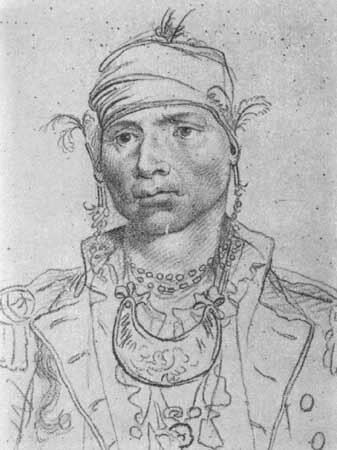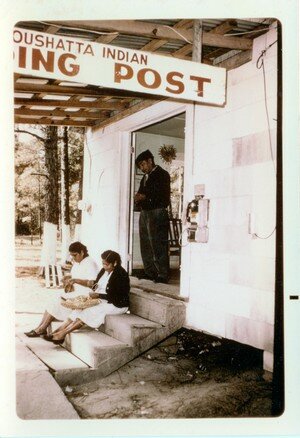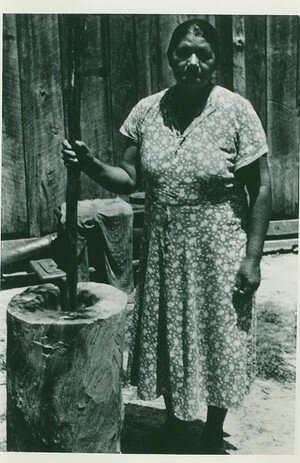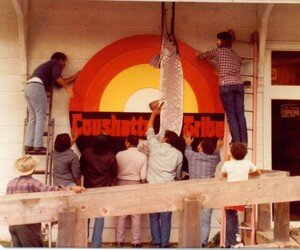Tribal History
The Sovereign Nation of the Coushatta Tribe of Louisiana is a federally recognized Native American Tribe with approximately 865 members. The Coushatta people live primarily in Louisiana, with most living in Allen Parish, just north of the town of Elton, Louisiana, and east of Kinder, Louisiana. A small number share a reservation near Livingston, Texas with the members of the Alabama-Coushatta Tribe.
The Coushatta people have called the piney woods of Southwest Louisiana home for more than a century After the Spanish explorer Hernando DeSoto encountered a Coushatta community on a Tennessee River island in 1540, the Coushattas relocated, beginning a long series of moves aimed at avoiding European encroachment. By the 1700s, the Coushattas had resettled near the convergence of the Coosa and Tallapoosa Rivers in Alabama and had become part of the powerful Creek Confederacy. Despite this association, the Coushatta maintained their own culture and language and, throughout the eighteenth century, tribal leaders played an increasingly important role in Creek politics.
In 1797, the influential Coushatta chief Stilapihkachatta, or “Red Shoes,” led a group of 400 followers to Spanish Louisiana and, in the spring of 1804, another group of 450 Coushattas joined them in the territory. Over the next several decades, the Coushattas moved their villages from place to place, crossing the Red, Sabine, and Trinity Rivers, in an effort to remain in neutral areas between French, Spanish, American, and Mexican territories. In the 1880s, a group of approximately 300 Coushattas settled at Bayou Blue north of Elton, Louisiana, where they would remain. As the 20th century dawned, Coushatta leaders turned their attention to ensuring the well-being of their people and they began to engage the United States government in this effort. Years of lobbying paid off in 1935, as the federal government extended tuition funding to Coushatta children and, in 1945, offered community members contract medical care. Then, in 1953, the relationship between the Coushatta and the federal government soured, when, despite earlier treaties with the tribe, the Bureau of Indian Affairs terminated all services to the community without congressional approval or community consent.
Efforts to regain federal recognition began in 1965, as community members organized Coushatta Indians of Allen Parish, Inc. and established a local trading post to sell Coushatta pine needle baskets. In 1970, Coushatta leaders began petitioning the Indian Health Service to again provide medical care for tribe members. These efforts were successful in 1972, which was the same year the Louisiana Legislature granted the Coushattas official recognition. Finally, in June of 1973, the Coushatta Tribe of Louisiana, under Tribal Chairman Ernest Sickey, once again received federal recognition from the Secretary of Interior.
After regaining federal recognition in 1973, the Coushatta Tribe began investing in a variety of enterprises in order to provide revenue for their tribal government and jobs for community members. Chief among these enterprises is the Coushatta Casino Resort, which opened in 1995 and has grown into the second largest private employer in the state of Louisiana. The Tribe also operates a variety of smaller business enterprises, as well as health, educational, social and cultural programs, that have economic and social impact on the tribal and surrounding communities.
The Coushatta Tribe now owns roughly 5,000 acres of land in Allen Parish and more 1,000 acres in surrounding parishes. The land is used for Coushatta-constructed tribal housing, rice and crawfish farming and development of new business programs, as well as buildings to house the Tribal Government and Tribal Finance Departments; a Tribal Police Department; and Community, Health and Learning centers.
Women’s roles have always been prominent in Coushatta society. In ancient times, clan systems were used to constitute political positions and ceremonial rights of the Coushatta people. Clans were passed to children only by the mother, a practice that is still carried on today. The Coushatta Nation continues to celebrate and honor the woman’s role in society by selecting young, distinguished women to serve as royal, tribal delegates officially titled the Coushatta Princess and Jr. Princess.
The Coushatta people work hard to preserve their Koasati language, their traditional crafts, such as their longleaf pine needle basketry, which is renowned world-wide, and their cultural traditions, including dancing, clothing styles, songs, and food-ways. The Coushatta were traditionally agriculturalists, growing maize and other food crops, and supplementing their diet by hunting game. Corn has always been a major staple for the Coushatta people. Today most Coushatta purchase Indian corn that has been dried to make their cha-wah-ka (corn soup). The dried corn is washed, "lyed" (a process used to soften the outer shell), and thoroughly pounded & sifted, then boiled over an open fire for several hours.



